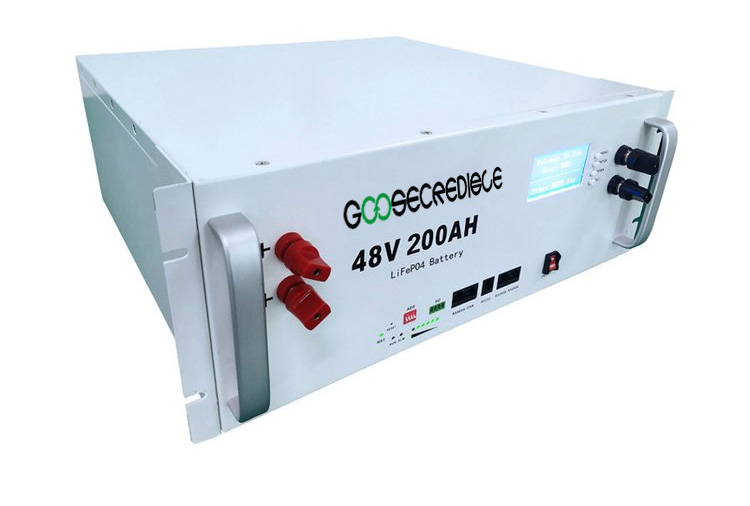Lithium Batteries: Revolutionizing Military Equipment
The military has always been at the forefront of technological advancements. From the invention of radar to the development of stealth aircraft, military innovations have often found their way into the civilian world. In recent years, one such advancement that is revolutionizing military equipment is the use of lithium batteries.
Lithium batteries are rechargeable batteries that use lithium ions as the primary component of their electrochemistry. These batteries have become incredibly popular due to their high energy density, long lifespan, and lightweight design. In military applications, these attributes are of utmost importance.
One area where lithium batteries have made a significant impact is in portable electronic devices used by the military. Soldiers rely on devices such as radios, GPS systems, night vision goggles, and communication equipment. These devices need to be lightweight and have long battery life to ensure soldiers can operate without interruption. Lithium batteries meet these requirements perfectly, allowing soldiers to carry less weight and operate for longer durations in the field.
Lithium batteries have proven to be highly reliable even in extreme conditions. Military operations often take place in harsh environments, including extreme temperatures and high altitudes. Traditional batteries struggle to perform in these conditions, reducing their efficiency and lifespan. In contrast, lithium batteries can operate in a wide range of temperatures and maintain their performance even at high altitudes. This reliability is crucial for military equipment as it ensures soldiers can depend on their devices no matter where they are deployed.
Another sector where lithium batteries are revolutionizing military equipment is in unmanned aerial vehicles (UAVs) or drones. Drones have become an integral part of military operations, providing real-time reconnaissance, intelligence gathering, and even precision strikes. The success of these missions depends on the drone’s ability to stay airborne for extended periods. Lithium batteries, with their high energy density, enable drones to fly longer distances and perform more complex tasks. This has greatly enhanced the military’s surveillance capabilities and has allowed for more effective and efficient operations.
The use of lithium batteries in military vehicles has also brought about significant changes. Traditional lead-acid batteries used in tanks and armored vehicles are heavy and require regular maintenance. In contrast, lithium batteries are lightweight and maintenance-free, making them an ideal choice for military vehicles. These batteries provide a longer operational range, reducing the need for frequent refueling or recharging. This allows military vehicles to stay operational for extended periods, increasing their effectiveness on the battlefield.
Lithium batteries also contribute to the reduction of the military’s carbon footprint. As the world becomes more conscious of climate change, militaries are looking for ways to reduce their environmental impact. Lithium batteries offer a greener alternative to traditional power sources. They have a higher energy efficiency, produce fewer greenhouse gas emissions, and are recyclable. This not only benefits the environment but also helps reduce the logistical burden of disposing of traditional batteries.

However, as with any technology, there are also challenges associated with the use of lithium batteries in military equipment. One major concern is the risk of thermal runaway or battery fires. Lithium batteries are known to be more prone to thermal events, which can result in explosions or fires. To mitigate these risks, military organizations are investing in research and development to enhance battery safety and implement robust battery management systems.
Lithium batteries are revolutionizing military equipment in numerous ways. Their high energy density, long lifespan, and lightweight design make them a perfect fit for portable electronic devices and drones. Their reliability in extreme conditions and maintenance-free nature make them ideal for military vehicles. Additionally, their environmental benefits and potential for reducing the military’s carbon footprint are significant advantages. While challenges exist, the military is actively working on mitigating them to fully leverage the potential of lithium batteries. As technology continues to advance, it is certain that lithium batteries will play an increasingly crucial role in shaping the future of military equipment.
-
 보트를 타려면 안정적인 전력 공급원을 확보하는 것이 필수적입니다. 바다로 나가거나 호수에서 하루를 즐길 때 보트를 원활하게 작동시킬 수 있는 배터리가 필요합니다. 해양 배터리가 필요한 곳입니다. 이러한 특수 배터리는 보트에 필요한 전력을 제공하는 동시에 독특한 도전 과제를 견디도록 설계되었습니다.더 읽어보세요
보트를 타려면 안정적인 전력 공급원을 확보하는 것이 필수적입니다. 바다로 나가거나 호수에서 하루를 즐길 때 보트를 원활하게 작동시킬 수 있는 배터리가 필요합니다. 해양 배터리가 필요한 곳입니다. 이러한 특수 배터리는 보트에 필요한 전력을 제공하는 동시에 독특한 도전 과제를 견디도록 설계되었습니다.더 읽어보세요 -
 리튬 배터리는 휴대폰, 노트북, 전기 자동차와 같은 많은 현대 장치의 필수 구성 요소입니다. 그러나 추운 날씨의 영향을 크게 받을 수 있습니다. 온도가 낮으면 배터리 내부의 리튬 이온이 더 느리게 움직여 배터리 용량과 전반적인 성능이 저하될 수 있습니다. 따라서 리튬 배터리를 따뜻하게 유지하는 방법을 아는 것이 중요합니다...더 읽어보세요
리튬 배터리는 휴대폰, 노트북, 전기 자동차와 같은 많은 현대 장치의 필수 구성 요소입니다. 그러나 추운 날씨의 영향을 크게 받을 수 있습니다. 온도가 낮으면 배터리 내부의 리튬 이온이 더 느리게 움직여 배터리 용량과 전반적인 성능이 저하될 수 있습니다. 따라서 리튬 배터리를 따뜻하게 유지하는 방법을 아는 것이 중요합니다...더 읽어보세요 -
 As more and more vehicles come equipped with electronic systems, the importance of the starter battery cannot be overstated. Without a functional starter battery, your vehicle is essentially useless. Unfortunately, many car owners have experienced the frustration of a dead starter battery, often due to the battery discharging when the vehicle is not in use for an extended period of...더 읽어보세요
As more and more vehicles come equipped with electronic systems, the importance of the starter battery cannot be overstated. Without a functional starter battery, your vehicle is essentially useless. Unfortunately, many car owners have experienced the frustration of a dead starter battery, often due to the battery discharging when the vehicle is not in use for an extended period of...더 읽어보세요 -
 In the world of renewable energy, the search for reliable and long-lasting power sources is always ongoing. One such power source that has been gaining popularity in recent years is the 100Ah 12V LiFePO4 battery. This type of battery is considered to be a breakthrough in battery technology due to its advantages over traditional lead-acid batteries. The 100Ah 12V...더 읽어보세요
In the world of renewable energy, the search for reliable and long-lasting power sources is always ongoing. One such power source that has been gaining popularity in recent years is the 100Ah 12V LiFePO4 battery. This type of battery is considered to be a breakthrough in battery technology due to its advantages over traditional lead-acid batteries. The 100Ah 12V...더 읽어보세요 -
 With the increasing demand for renewable energy sources, the need for efficient and reliable battery technology has become more crucial than ever. One of the most promising advancements in this field is the development of high-efficiency 48V LiFePO4 battery chargers. These chargers are specifically designed to enhance the performance of lithium iron phosphate (LiFePO4) batteries, which are known for their...더 읽어보세요
With the increasing demand for renewable energy sources, the need for efficient and reliable battery technology has become more crucial than ever. One of the most promising advancements in this field is the development of high-efficiency 48V LiFePO4 battery chargers. These chargers are specifically designed to enhance the performance of lithium iron phosphate (LiFePO4) batteries, which are known for their...더 읽어보세요 -
 In recent years, there has been a significant increase in the use of mobile robots across various industries and sectors. These robots are designed to perform tasks autonomously, without the need for human intervention. One crucial component that powers these robots and enables them to operate for extended periods is the lithium-ion battery. Lithium-ion batteries have revolutionized the field...더 읽어보세요
In recent years, there has been a significant increase in the use of mobile robots across various industries and sectors. These robots are designed to perform tasks autonomously, without the need for human intervention. One crucial component that powers these robots and enables them to operate for extended periods is the lithium-ion battery. Lithium-ion batteries have revolutionized the field...더 읽어보세요 -
 To charge a Lithium Iron Phosphate (LiFePO4) battery, follow these general steps: Use a charger specifically designed for LiFePO4 batteries, as this type of battery has a different charging profile than other lithium-ion batteries. Connect the charger to the battery, making sure the polarity is correct. Set the charger to the appropriate charging voltage and current for your specific battery....더 읽어보세요
To charge a Lithium Iron Phosphate (LiFePO4) battery, follow these general steps: Use a charger specifically designed for LiFePO4 batteries, as this type of battery has a different charging profile than other lithium-ion batteries. Connect the charger to the battery, making sure the polarity is correct. Set the charger to the appropriate charging voltage and current for your specific battery....더 읽어보세요

